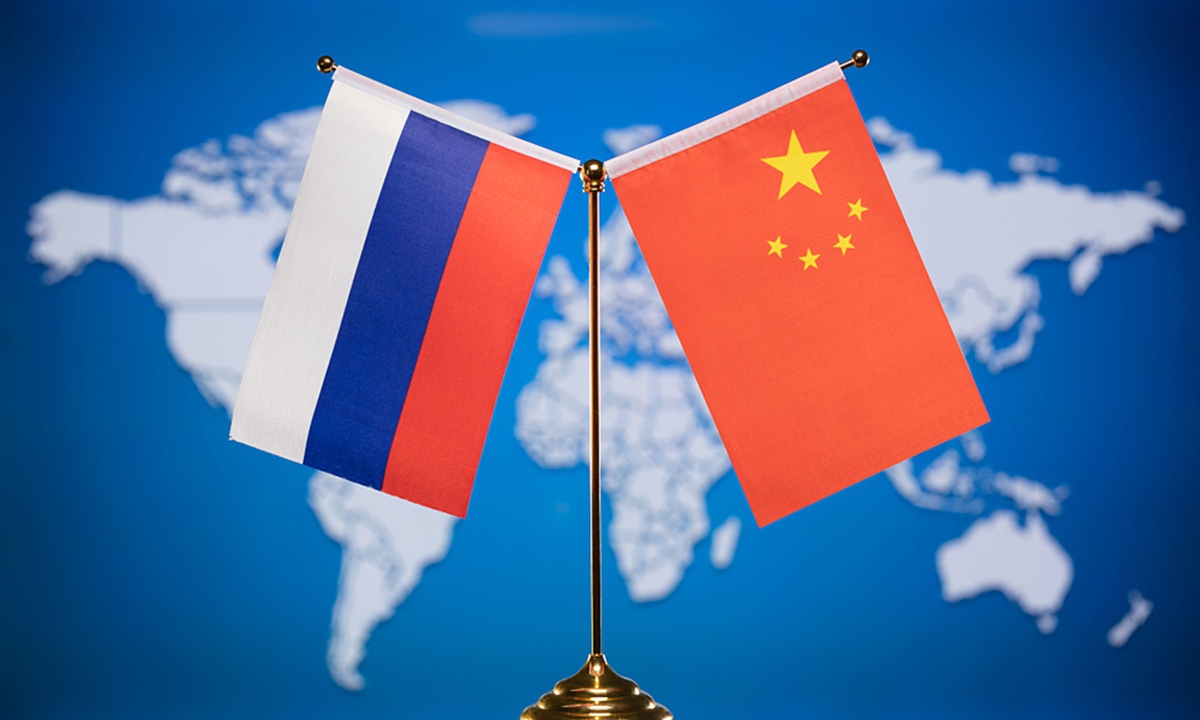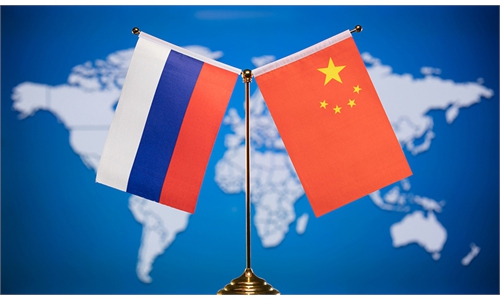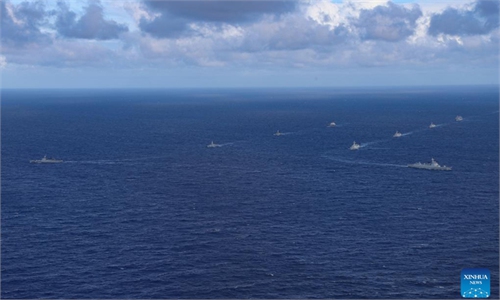China-Russia joint exercises to maintain peace, stability in Asia-Pacific region

China Russia Photo: VCG
The Chinese and Russian navies carried out a joint exercise coded "Exercise Joint Sea-2024" at a military port in Zhanjiang in South China's Guangdong Province this week, with the purpose of safeguarding maritime security in this challenging and complicated international situation. The two navies also recently conducted their fourth joint maritime patrol in sea areas of the western and northern parts of the Pacific Ocean.Many commentators in the West keep questioning the purpose of joint naval exercises between China and Russia, speculating if these exercises indicate a growing strategic military alliance between the two countries, and if so, against whom. My observation is just the opposite. These joint military exercises and naval patrols actually demonstrate a commitment to preserving peace and stability in the western and northern parts of the Pacific. There are countries that are pushing for confrontation and seeking to divide nations into opposing blocs, potentially sparking a new Cold War or even a hot war. In light of these dangerous geopolitical developments, both China and Russia need to be ready for any further deterioration of the situation.
Therefore, the real purpose of the joint naval exercises and patrols between China and Russia is not to provoke confrontation or military conflict, but rather to show all observing countries that both China and Russia are dedicated to maintaining peace and stability in the Asia-Pacific region. This commitment can help prevent the outbreak of war or the escalation of tensions into a military confrontation.
However, China's military exercises are always labeled by Western media as demonstrations of military might or acts of military provocation. The Western media is really playing with double standards. They never criticize the US or other Western countries for their joint military exercises, including naval exercises. They never point a finger at them for raising the stakes and increasing tensions in our part of the world. However, they accuse China of increasing its military expenditure, even though Chinese military spending is only a fraction of that of the US.
From China's perspective, whatever the Western media accuses China of is inconsequential. China is a sovereign country and can decide for itself what kind of joint military exercises it wants to conduct with any other country, including Russia. No country has any legal right to disrupt or prevent China from engaging in such joint military and naval exercises with any country.
Besides, China and Russia have chosen the South China Sea as the location for the exercises. There is a real tug-of-war in the South China Sea between China and some other countries that were aided and abetted by larger powers. This is the real crux of the matter causing rising tension in the South China Sea. China is dedicated to working with all the other littoral countries to resolve whatever problems there are between us through peace, negotiation and diplomacy. However, there are countries agitating some littoral nations to resort to violence and push China around as if they can assert their illegitimate claims to islands, reefs, or atolls that are China's sovereign territory.
Therefore, China needs to demonstrate to everyone observing the situation that it will not give up an inch of land and will not tolerate any violation of its sovereignty and territorial integrity. China firmly believes that, based on historical facts, its sovereignty and territorial integrity in the South China Sea, including the nine-dash line, are beyond any doubt and should not be subject to challenge by any country in this part of the world. In this overall context, the joint military patrols between the Chinese Navy and the Russian Navy will help demonstrate this particular point.
Russia has repeatedly declared that it fully respects China's sovereignty and territorial integrity in the South China Sea. This is the megatrend of the world today. No country should indulge in the fantasy that, with the support of some other big countries, they can impose their version of the truth.
The author is a chair professor at Soochow University and Vice President of the Center for China and Globalization. opinion@globaltimes.com.cn


